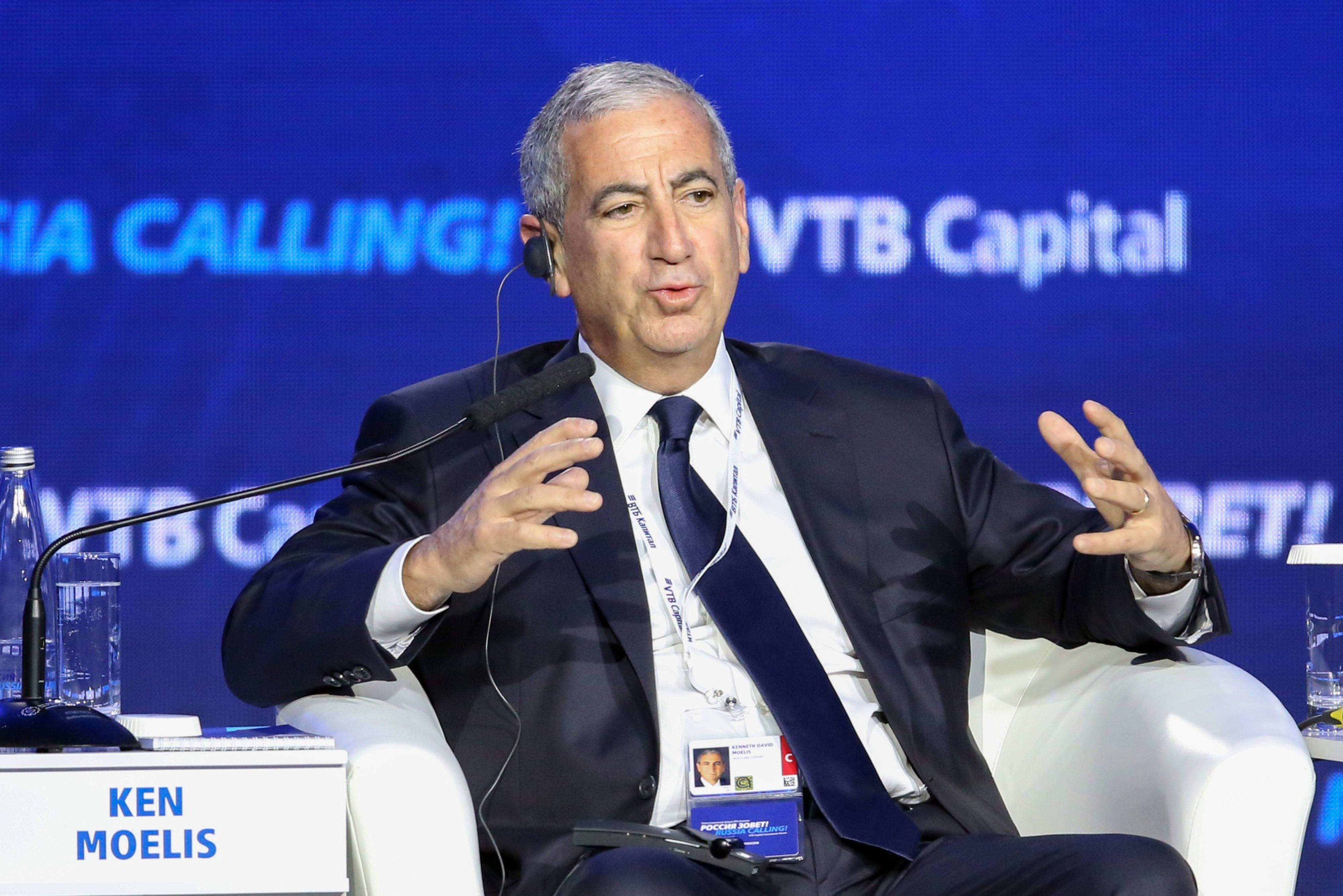The End of Globalization
KEN MOELIS
Founder and CEO, Moelis & Co.
What we’re seeing in front of us right now is deglobalization. You’re going to see nation-states look internally and make sure they have the ability to support themselves.
Take Germany for example. Germany’s strategy up to this point was to outsource their military to the US, their financial management to the EU, their energy supply to Russia, and their end market to China. This was the complete globalization of an economy. You can see at this point, I think they’re in extreme trouble.

Ken Moelis (Bloomberg)
Throughout history, most countries would not outsource items that were important to their well-being — food being one of them, and energy is showing up as extremely important. What’s going to happen now is each society is going to have to think about: Did I outsource something that I’m not comfortable with?
In the US, we have a spectacular country filled with the resources we need. The fact that we don’t have an energy supply right now has been a choice. But we can make that policy choice. It’s not immediately reversible, but I think it will be reversed. We have food supplies.
Germany has gotten itself in a position where it does not have energy supplies. It turned off its nuclear. It’s right at the center, near the war and the ramifications. We’re seeing the elements of deglobalization and its cost to ordinary people.
If you look at what’s happening in the Russia-Ukraine war, I think there’s more going on there in terms of supply chains and sense of security. I’m horrified by the war and the invasion, but I think the motivations and the rationale and what’s happening are going to highlight to people: Can I provide the basics? Each country will move to protect their own citizens. And as a result, they might deglobalize ahead of you.
Populations all over the world want to eat and be heated in the winter. They want access to cheap electricity. All these things are going through the roof. To the extent we’re feeling the political pain in the US, I believe we’ll solve this problem. It might take a couple of years, but it’ll work its way out. Not everybody has that choice.
It’s much harder in the rest of the world. We have incredible land to farm and supply food, we have incredible energy. But much of the rest of the world has depended on flows of those food goods. Part of Africa is totally reliant on Ukrainian wheat fields. And Russia was a gigantic exporter of wheat. This is the basic food ingredient that keeps people from rioting. We saw it in Sri Lanka, where you’re nine meals away from having a very unhappy citizenship that’s willing to take extraordinary action to get their families safe.
The vast amount of society is trying to reach middle class. If we raise their energy costs dramatically, they’re not going to be happy about that. I think the Arab Spring, fundamentally, started over food prices. Their basic instinct is to feed, heat, clothe and take care of their family.
Some of our policy moves here are going to have very long-term ramifications. The global financial system was put together to ease global transactions. And by doing that, a lot of people kept money at the Federal Reserve — they felt that money is free from risk. But it was there to lubricate transactions. We froze the bank reserves of Russia. A substantial number of finance ministers around the world have to rethink: Are their assets secure?
I’ve had many people ask me: What do I do with my assets in China? What do I do with my assets in Hong Kong? There’s a lot of Western investment in Hong Kong — what happens if we end up in a similar disagreement or conflict, are those assets subject to immediate abandonment? These are questions everybody’s going to ask, whether they talk about them a lot or not. I’m not saying we’ll go to 100% investment in your own country. But boy, the risk premium has significantly gone up.
The US is well positioned for this. What makes me concerned is that there’s a possibility this leads to revolution in populations that do not have control over their food and energy. I get concerned as to what can happen in countries if oil and gas gets to be $200 a barrel, and if the food supply gets disintermediated. You could have ramifications we haven’t seen.
I’m pretty bullish on the world. So I think people figure these things out. But I think the quicker the world focuses on it and admits that they have to supply and be independent of global trade, the better for their populations.
This article was provided by Bloomberg News.








